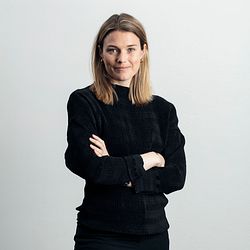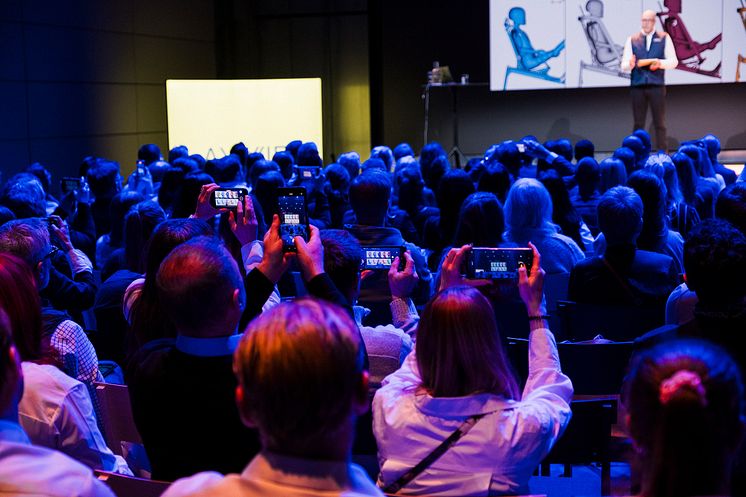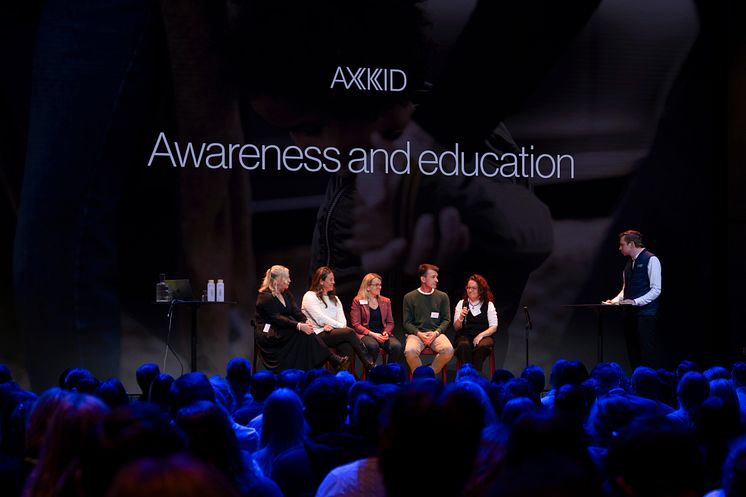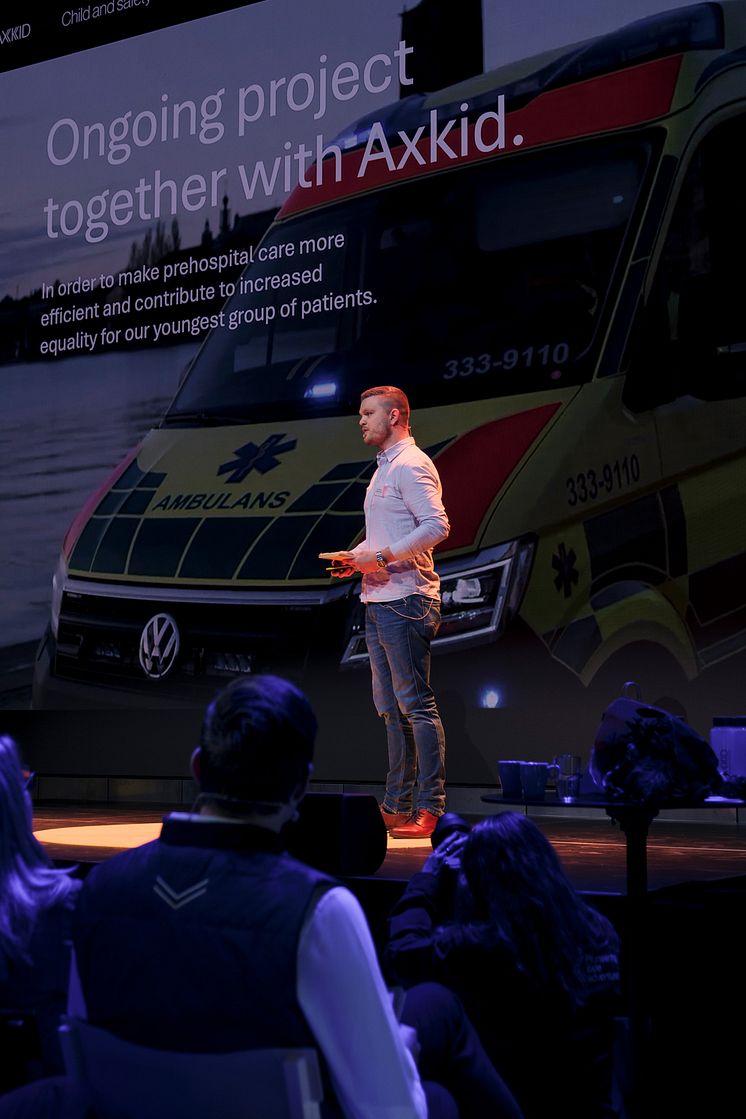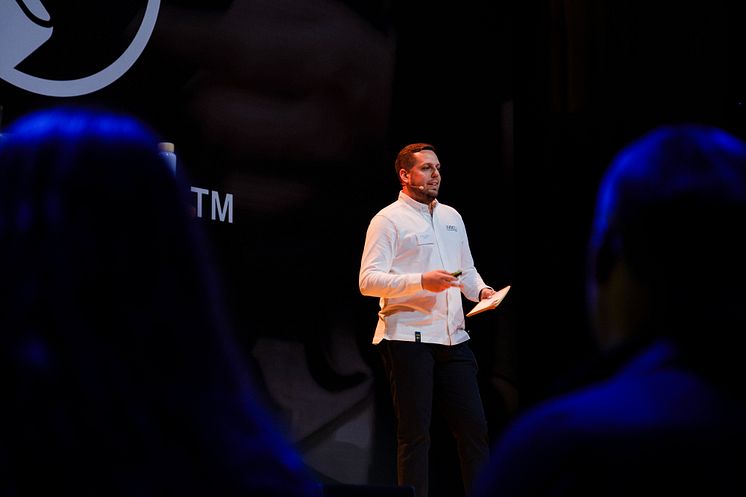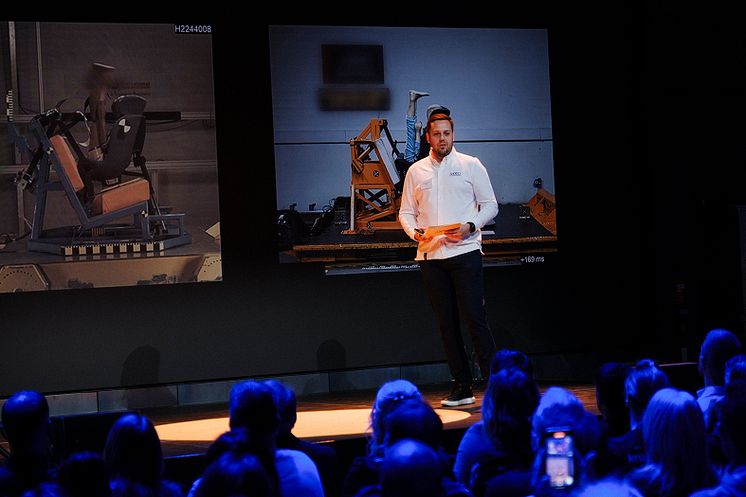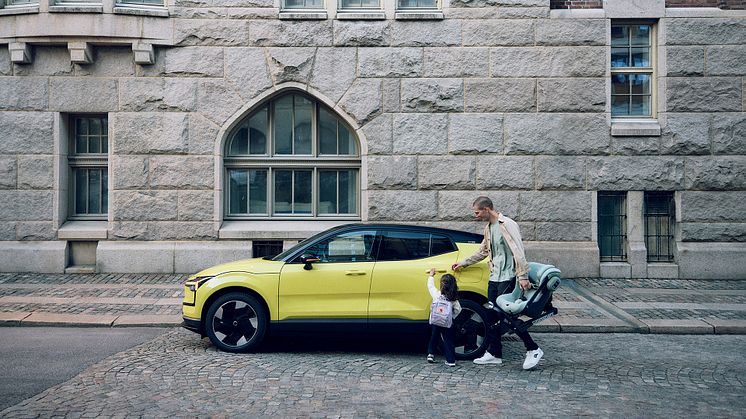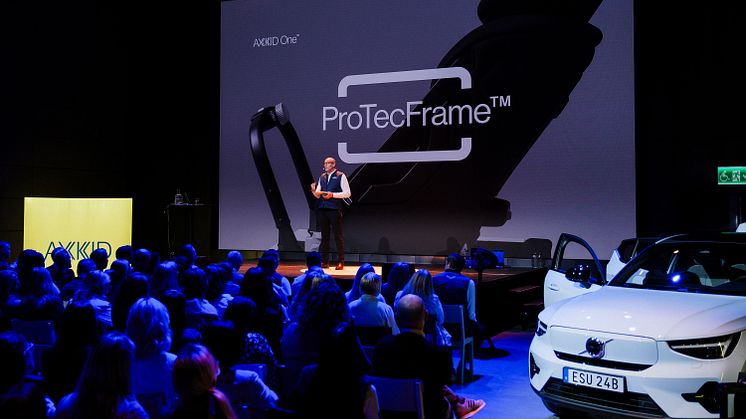
Press release -
New Conference highlights Insufficient Child Safety Measures in Vehicles
Sweden is frequently acknowledged as a leader in child safety within the automotive realm. Nevertheless, there remains considerable room for enhancement even within this esteemed reputation. The Axkid Child and Safety Conference, hosted at World of Volvo, brought together representatives from governmental bodies and corporate entities in Sweden and worldwide to address the critical issue of child safety in vehicles.
– European legislation mandates rear-facing travel for children during their initial fifteen months. Rear-facing transportation provides approximately fivefold greater safety for the child, and extensive research supports extending this practice in line with the Swedish recommendation, ideally until the age of 4–5, but preferably even longer, states Daniel Lundgren, Axkid's safety manager.
The conference, previously convened on a smaller scale in Poland, Germany, and Spain, aimed to amplify awareness by inviting both international and domestic authorities in the field to World of Volvo in Gothenburg. Notable participants included Volvo Cars, the VTI research institute, Folksam, the Stockholm Ambulance Service, and governmental representatives from various nations.
According to Daniel Lundgren, safety manager at Axkid, the decision to host the conference in Gothenburg was strategic:
– Sweden serves as a pioneer, partly due to our commitment to a zero-fatality and zero-serious-injury vision in traffic. Demonstrating the need for self-reflection and improvement here can serve as a catalyst for international stakeholders to follow suit.
Inadequate regulations and recommendations
In addition to legislation stipulating rear-facing travel for up to 15 months, Sweden recommends extending this practice until at least 4–5 years of age. However, Daniel argues that even this recommendation falls short, pointing out that a child's head comprises between 20 and 25 percent of their body weight – compared to 6 percent for an adult. Consequently, the risk of trauma to a child's head and neck in the event of a collision is significantly higher when they are forward-facing.
– Our perspective is that two laws clash here. On one hand, legislation mandates rear-facing travel for up to 15 months. On the other hand, the Convention on the Rights of the Child emphasizes that the child's best interests should prevail in all circumstances. Advancing to forward-facing too soon disregards the child's best interests, asserts Daniel Lundgren.
Shortcomings have also been identified in ambulance transportation and for children with disabilities. Among the conference speakers was ambulance nurse Andreas Ericson, who has been advocating for improved safety for children during emergencies for several years. A solution to the problem is nearing fruition, facilitated through collaboration between Chalmers University of Technology, Axkid, and Lindholmen Science Park.
– We have often addressed child safety in ambulances using various temporary solutions. Our ambition is to establish a far more sustainable solution, and it's truly exciting to see the progress we've made. Our hope is that it will evolve into a widely adopted solution that enhances child safety on a broad scale," says Andreas Ericson.
The conference, intended to provide a platform for a pressing issue, culminated in the presentation of the Child and Safety Prize. The 100,000 SEK prize was awarded to Jason Lee from South Korea, recognizing the establishment of rear-facing travel in a region where rear-facing car seats were previously scarce.
Topics
Axkid is a leading innovator in car seats, dedicated to promoting rear-facing travel for increased safety. The company was founded in 2009, and with its Swedish heritage in safety, innovation, and design, Axkid is making roads safer today across Europe and parts of Asia, Africa, Oceania, and South America. The products are sold through retailers and their own e-commerce platform. By educating on traffic safety and providing the best protection and comfort for young adventurers, they also offer peace of mind to parents around the world.


